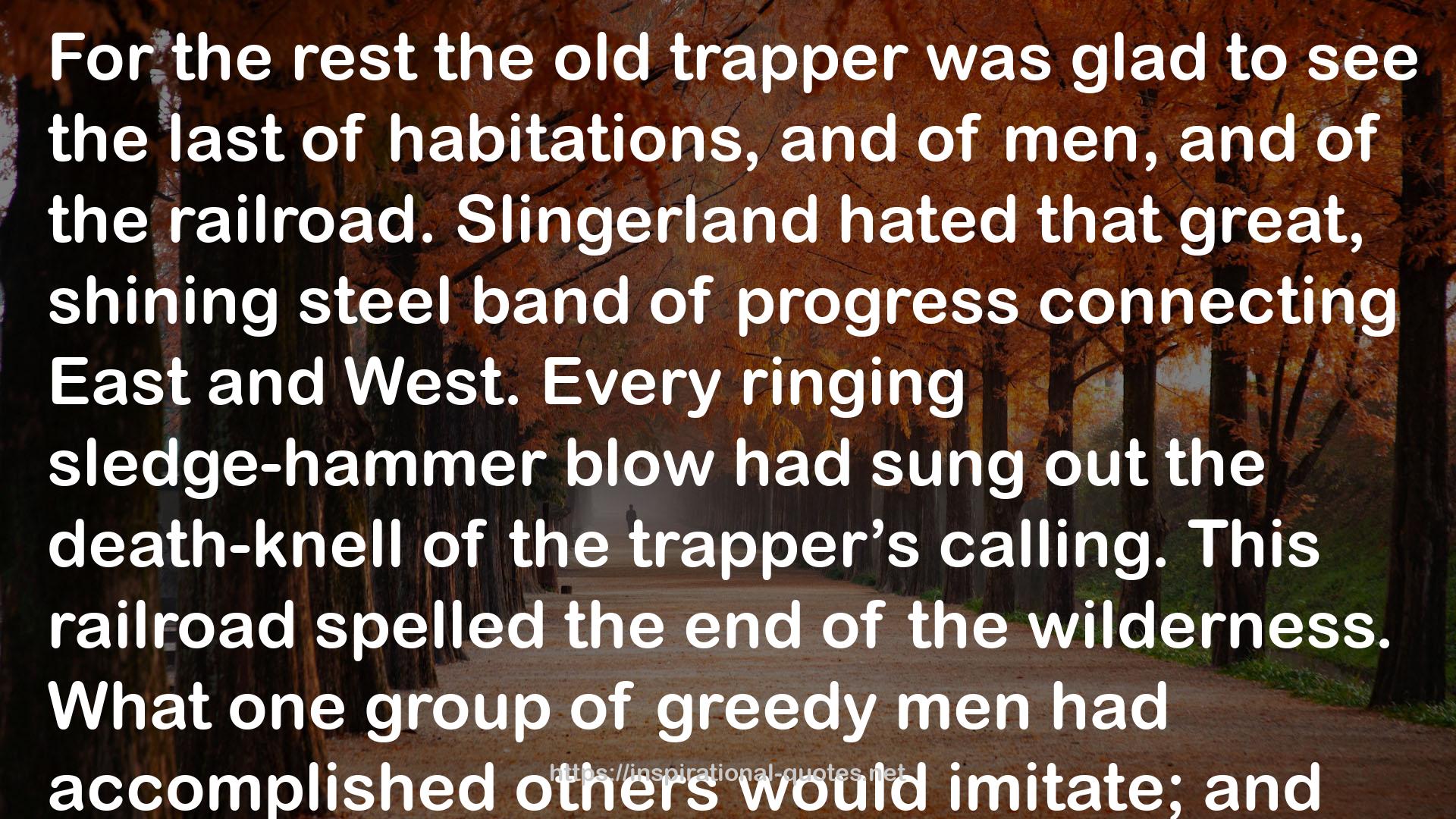" For the rest the old trapper was glad to see the last of habitations, and of men, and of the railroad. Slingerland hated that great, shining steel band of progress connecting East and West. Every ringing sledge-hammer blow had sung out the death-knell of the trapper’s calling. This railroad spelled the end of the wilderness. What one group of greedy men had accomplished others would imitate; and the grass of the plains would be burned, the forests blackened, the fountains dried up in the valleys, and the wild creatures of the mountains driven and hunted and exterminated. The end of the buffalo had come — the end of the Indian was in sight — and that of the fur-bearing animal and his hunter must follow soon with the hurrying years.
Slingerland hated the railroad, and he could not see as Neale did, or any of the engineers or builders. This old trapper had the vision of the Indian — that far-seeing eye cleared by distance and silence, and the force of the great, lonely hills. Progress was great, but nature undespoiled was greater. If a race could not breed all stronger men, through its great movements, it might better not breed any, for the bad over-multiplied the good, and so their needs magnified into greed. Slingerland saw many shining bands of steel across the plains and mountains, many stations and hamlets and cities, a growing and marvelous prosperity from timber, mines, farms, and in the distant end — a gutted West. "
Image for Quotes
